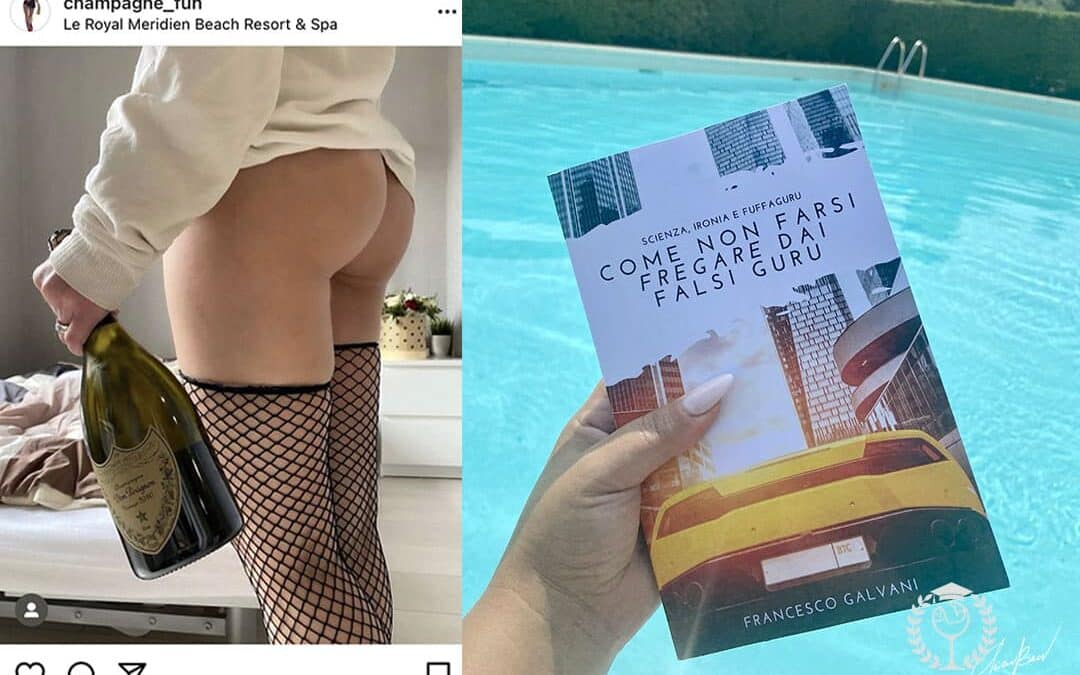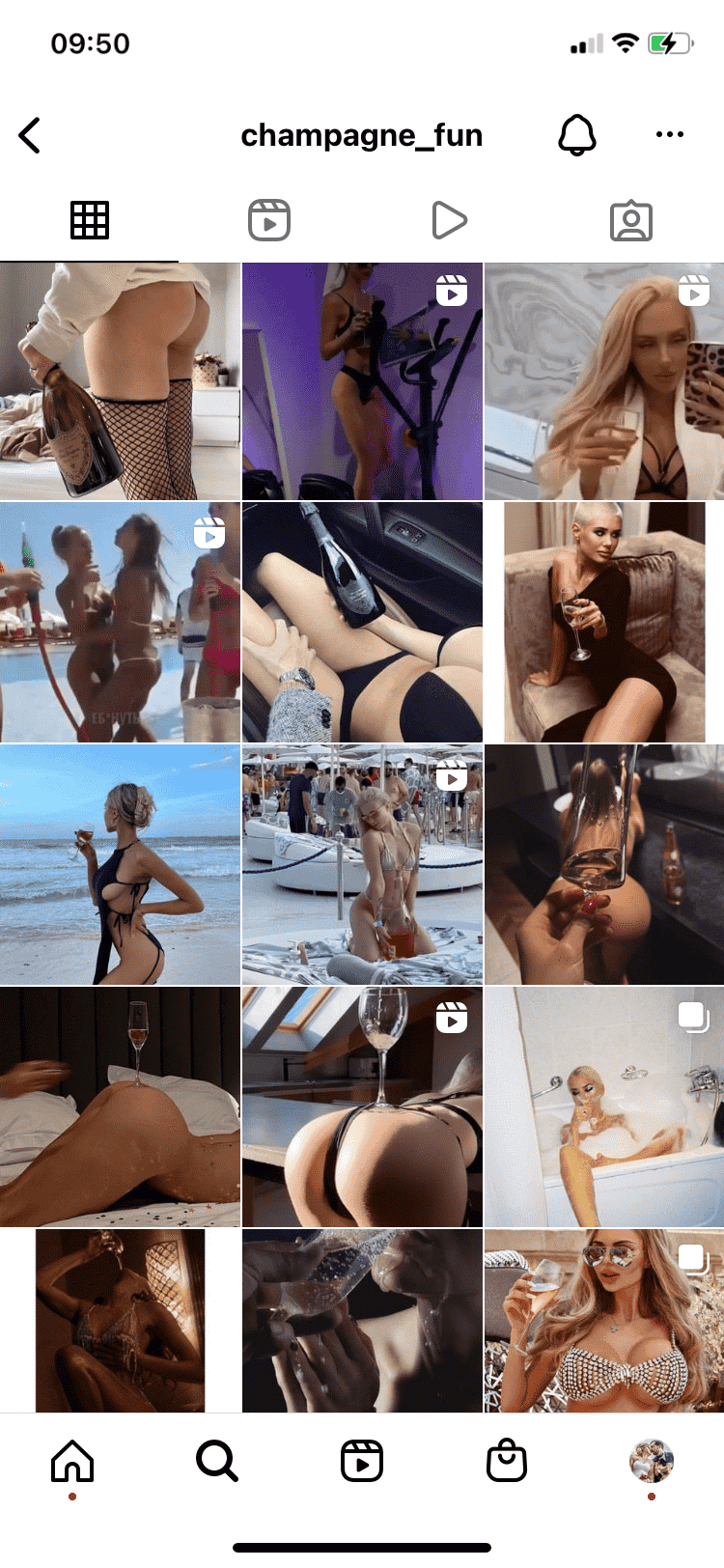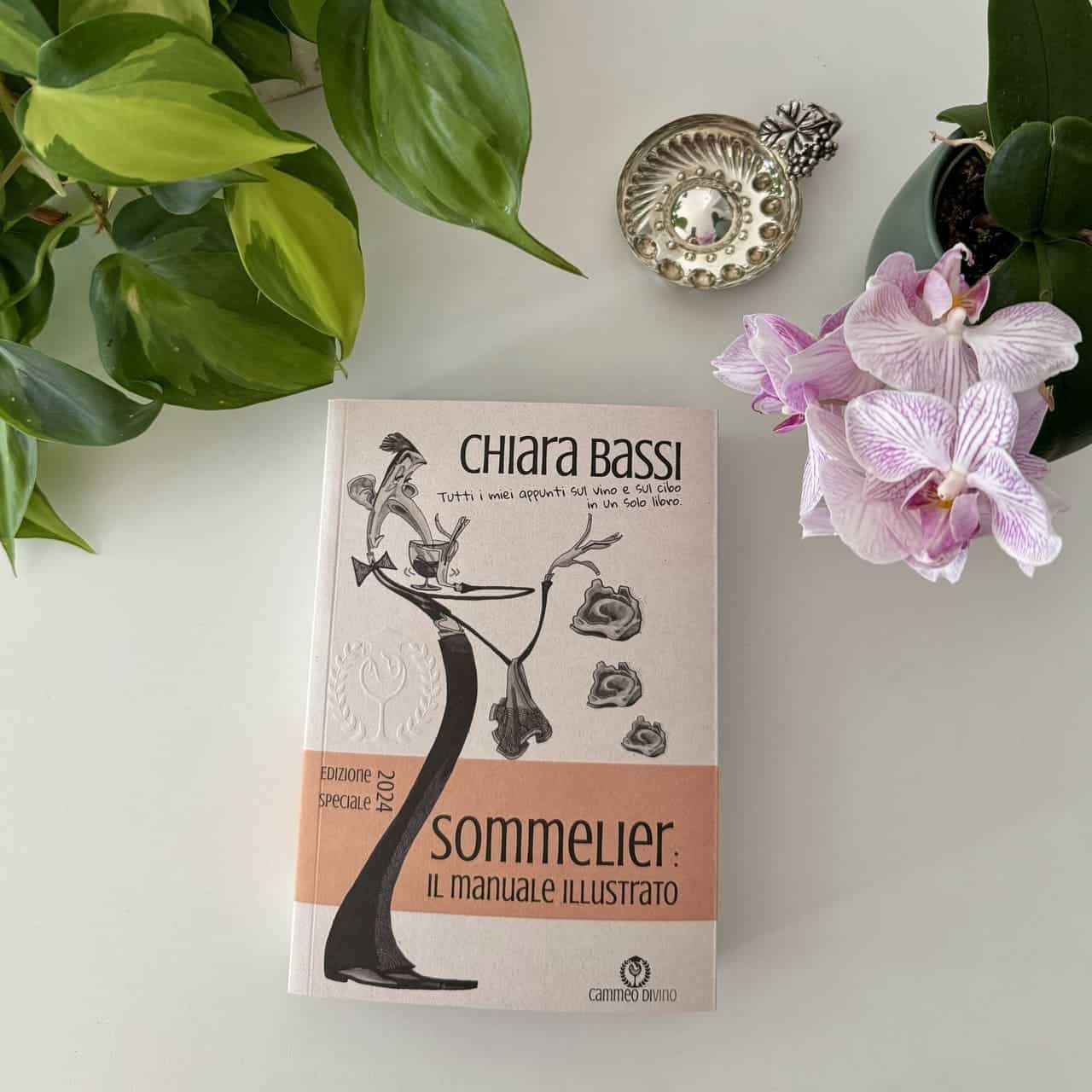It is almost two o'clock in the morning and a fabulous breeze comes in through the door and caresses my cheeks. It feels really good. And since I love writing at night, this really is the perfect time to share with you some passages from the new book by Francesco Galvani “How not to be fooled by false gurus" with my reflections attached to thewine influencer marketing. Of course, Francesco was inspired by gurus of a completely different nature, those who sing the song 'Sole cuore amore' (Sun, heart, love) to the rhythm of 'Dubai Lambo Capponi (yes, the very ones we use in Romagna to make broth...)'. Yet the more lines I read about this book, the more images of certain wine influencer.
Influencer or Content Creator?
Before delving into the intricacies of this treatise that is as scientific as it is ironic (to quote Galvani), I want to make two important points: one on content creators and one on the very meaning of the word influencer. The content creator is the person who - as an employee or external collaborator of a company - creates quality content (hopefully) capable of building, disseminating and preserving the client's brand image. Then someone might object that the blogger is also a content creator... and he is partly right. The difference, however, lies in the profession: any professional is in fact a 'content creator', whether an auditor or an architect. The difference is that the content creator is a job and translates as above, so it is not just the literal translation. An Influencer is someone who - as a successful personality in a certain field or a popular/television personality - is able to influence the behaviour and/or choices of a certain audience. It follows then that any person can be an influencer, from Giorgio Mastrota to Cristiano Ronaldo, from Chiara Ferragni to the pain in the ass who lives in the flat above yours and walks around the house in heels at night and moves furniture on Saturday mornings. Anyone is potentially an influencer for a certain audience of people whose numbers increase as popularity increases. Content creator, on the other hand, is a job and should be treated as such. It is done by a professional expert or popular in a certain field (rarely both) who creates quality content (for YouPorn or, more rarely, for his or her audience).
Influencer marketing and 'fuffa guru'
Above is the feed of the Instagram profile @champagne_fun. Now, it's clear that throngs of lady Instagrammers would call me a gypsy: I'm a size 12 and my boobs are anything but out of a red Baywatch swimming costume! But do you really think there's anything enviable about sporting a body in the wine world to catch a few more likes from yet another pussy dead guy? Seriously, you're just like the fuffa guru kids who rent the Lambo and the flat in Dubai just to take pictures (I gave someone the cue, didn't I??) and call anyone who tries to expose them a "cheapskate". Another necessary clarification: I have nothing against those who use their beauty for work: from models to porn actresses and everything in between... I respect everyone. But I fail to understand the connection between tits, asses and bottles of wine. Then I also say as always: if your Instagram profile works and you get paid for it, you do great, really! But please: don't ever think that I'm pining for you... in eight years of work I have built something with study, sweat and sacrifice that gives me a living and will give me a living even when my little tits defy Newton's law.
There is one category of Instagrammer that I really don't respect: they are the wine fuffagurus. And now let's unmask them together with the help of the book 'How not to be fooled by the fuffaguru' by Francesco Galvani.
You can now subscribe to my newsletter or scroll down the page to continue reading the article!
"The fuffaguru dominate where most people, correctly or not, believe that a field of knowledge or a particular job is within everyone's reach and, apparently, there is more theory than specialist practice. We speak of fields with low illusory barriers to entry'.
Francesco Galvani
TAAAAC, here is the first reason for the emergence of the fuffa profiles often so much admired by influencer marketing. With an 'investment' of 100 € to 1,000 € you buy 100,000 K followers of low or very low quality, even Italian ones. 5€ buys you 1000 likes on your post: what does it take to increase engagement even without a POD? And this is how a whole series of profiles of male instagramers were born, who having neither melons nor peaches to sell resorted and/or still resort to compulsive buying that Paris Hilton shunned.
Instagram is perceived as a 'favourite field' because the barriers to entry appear low and competence unnecessary. Whether one takes a chicken-mouthed selfie or buys the latest packet of followers/likes, being successful on Instagram is perceived as within everyone's reach. What is surprising, however, is the connection with wine, a rather difficult technical field that requires a lot of study, some personal aptitude and continuous training. The explanation probably lies in the fact that Instagram is a visual media and it is not strictly necessary to have a real culture of the wine/topic in which one 'fuffs'. And the air fryers in influencer marketing and the ignorance of those who engage them wallow in it and touch all 'niches', from fashion to food. There they are, all lined up... on display. And you see wineries, consortia, fairs, festivals and companies in general calling and paying them to show their bottles/events to an audience that only exists in their dreams. Congratulations!
And so the instagram profiles of wine influencers are often populated with wines that I wouldn't even use to wash a duck, and I am therefore thankful that their audience, in most cases, if it is real prefers 'the fruit', if it is fake they don't even notice.
Influencer Marketing: two aspects, or rather biases, to take into account
Francesco Galvani in his book talks about halo effect (halo effect) and WYSIATI (What You See Is All There Is).
"L'halo effect represents our innate tendency to extend the positive or negative traits of a specific aspect of a person over almost all other aspects of their personality. It was coined by psychologist Edward Thorndike, who used it to establish extremely effective educational methods. Even Dante fell for it when he deduced that Beatrice was the most angelic woman in the world given her enchanting aesthetic traits. Curiously enough, this systematic error has a name: the beauty stereotype. Not only for Dante. Almost all of us expect a person of stunning beauty to also be nice, kind, funny, charismatic, intelligent'.
Francesco Galvani
I am sure that many peach and melon gourmets are led to see the young lady in question as the holder of the absolute truth about wine, others will see her as equally competent as they see her as beautiful. But the same is also true outside the circle of the pussy dead: the same communication agency, while selecting profiles for its Influencer Marketing campaign, will be led to see a beautiful and well (s)dressed Instagrammer as a successful communicator full of charisma.
Similarly, the WSYATI, which is a kind of first impression that makes us quickly draw conclusions, can be applied to those compulsive buying boys (and girls) I mentioned earlier.
The WYSIATI implies that anyone who gives you a coherent image and brings back arguments consistent with a high image of status and success will have a certain amount of confidence in you a priori. Worse still, you will find it very difficult to be cynical and extract from memory arguments contrary to what you are given. Simply because we are literal and like to believe everything that is in front of us.
When you try to oppose arguments in a group (to prove the air-frying and grape-grinding talents of the Instagrammer on duty) you step into the dock. You have the burden of proof and not the person who is currently saying and promoting nonsense.
Oh my, when I read that, more than one Instagram profile came to mind. And you?
Time and time again I see instagram profiles that are consistent in appearance and flaunt a successful status receive the unconditional trust of companies, media agencies and others in the industry... and no one bothers to pick up the burden of proof and prove their worth.
You can now buy my book Sommelier: the illustrated manual or scroll down the page to continue reading the article!
Book "Sommelier: the Illustrated Manual" Special Edition 2024
All my notes on wine and food in one book.
€ 38,00 VAT included!
In stock (can be backordered)
Influencer marketing: so is it all doom and gloom?
For the avoidance of doubt I would like to tell you that no, I believe in influencer marketing because I for one have continuous proof of its effectiveness when:
[Passive Subject]
- Calogero Latino - my favourite Brontese pastry chef - posts a reel on Instagram as he cuts the latest delicacy filled with pistachio cream and I three seconds later buy three pistachio panettoni on his e-commerce;
- Lee Min-Ho - my favourite Korean actor and for me the holder of the highest possible male handsomeness - posts a video of everyday life in the world's most technological city and three seconds later I start studying Korean again;
- Architecture & Design posts a video or a photo of spectacular architecture and I find myself designing my dream home in no time;
- …
[Active Subject]
- I post a Story on Instagram and a few minutes later I get an order or request about the content I posted;
- I publish a post on Instagram and those who have already bought the product leave a spontaneous review;
- …
This list could be so much longer, but it is to say that I have no doubts about the effectiveness of Instagram because there is no doubt that seeing images we like stimulates our desires...
A Content Creator can therefore be a valuable ally in the creation of quality content that can accelerate the spread of the brand, increase its authority and instil desire. There are also Content Creators who create extraordinary content that can be used by the brand for promotion on other channels as well..
The difficulty then is the choice not to fall into the traps of the Instagram fuffagurus!
Influencer Marketing: how do you unmask a scammer at a glance?
There is a chapter in the book that I found very effective and talks about the aggressiveness of these subjects.
Gurus are the undisputed kings of compensating ineptitude with bitchiness:
- You dare to criticise them factually? They start the warnings and shoot at you.
- Do you point out that they have no experience of what they teach? They ruin your reputation.
- Do you try to converse with them punctually? Knowing absolutely nothing about their industry they respond by attacking you. [I add some young ladies point to victimhood, and every reference is intentional, more than casual...].
- You ask for proof of their statements? They make it clear that you are a fishmonger, an egghead, a loser.
Francesco Galvani
So if you are in front of a passive/aggressive subject who uses bias to manipulate your perception of him and in everything he does he puts his pretty face (or another body part) you are probably in front of a grape fryer. Professional, eh!
Cheers 🍷
Chiara
P.S. In the next article I will clarify once and for all the difference between blogger and content creator. If you like, leave me a comment here on the blog to tell me what you think...



